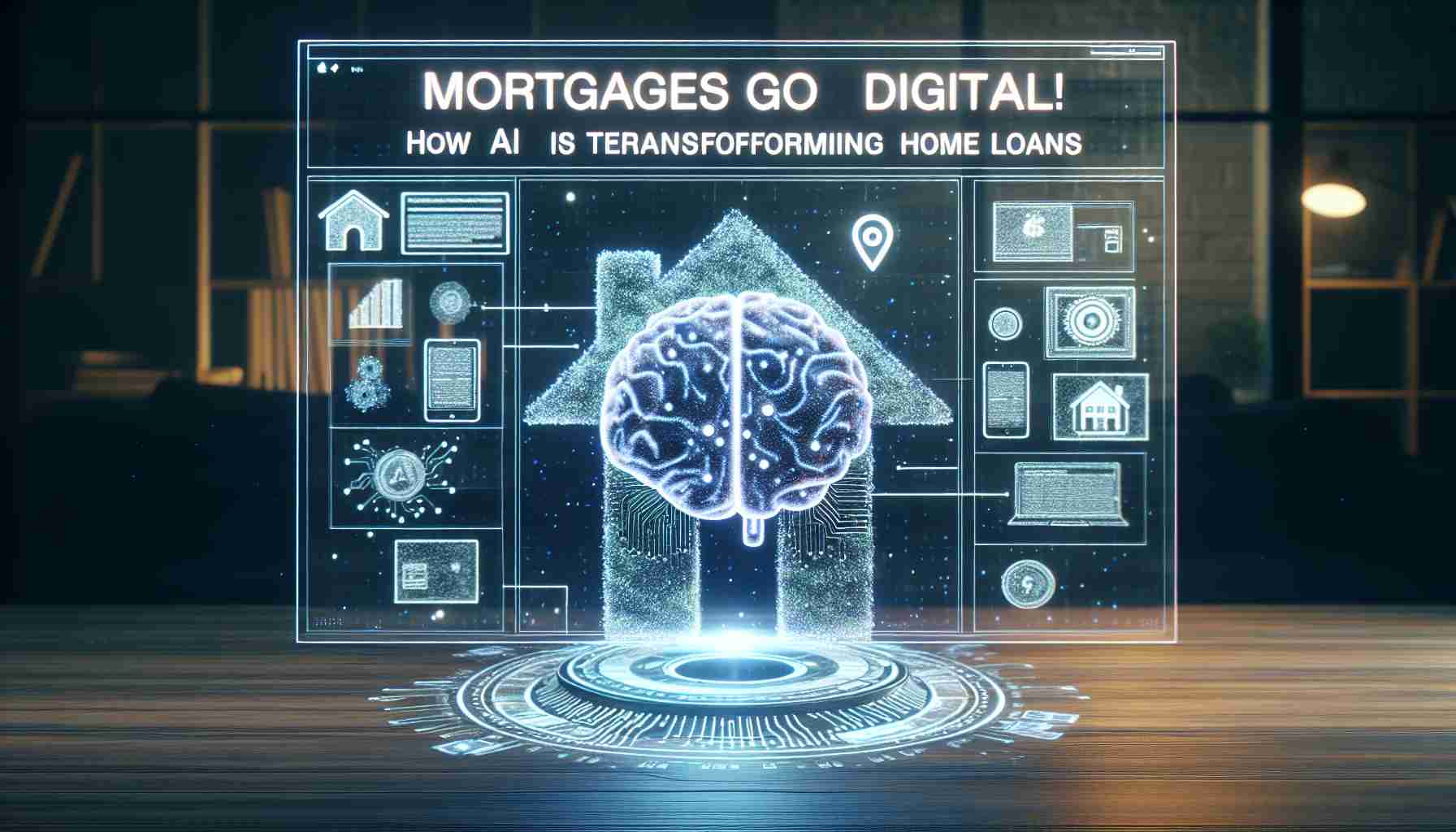In a rapidly evolving financial landscape, the age-old process of securing a mortgage is undergoing a groundbreaking transformation. Enter the era of AI-driven mortgages. Financial institutions are leveraging artificial intelligence not only to streamline the application process but also to personalize offers for borrowers in real time. By analyzing a myriad of data points, such as credit history, income stability, and spending behavior, AI systems can now provide tailored mortgage options that best suit an individual’s needs.
This technological leap doesn’t just benefit lenders; it empowers prospective homeowners as well. AI-powered platforms offer transparent, easy-to-understand insights into their mortgage eligibility, helping users make informed decisions. Additionally, AI’s predictive capabilities mean faster approvals, potentially reducing the application process from weeks to mere days.
Despite these advantages, the rise of AI in the mortgage sector does raise ethical questions surrounding data privacy and the digital divide. While some consumers will benefit from enhanced access and personalized offerings, others may be left behind due to lack of digital literacy or concerns over data security.
As AI continues to shape the future of home loans, the key challenge will lie in ensuring these technologies serve as tools for equity and inclusion, rather than mere efficiency. This digital transformation, if executed thoughtfully, could redefine the notion of home ownership for generations to come.
AI-Driven Mortgages: The Future of Home Financing Unveiled
The mortgage industry is witnessing a remarkable transformation with the advent of AI-driven solutions, offering unprecedented speed, efficiency, and personalization. Here, we delve deeper into this innovation and its implications for the future of home financing.
Innovations in AI-Driven Mortgages
AI-driven mortgages are revolutionizing the home loan landscape by utilizing machine learning algorithms to assess borrower profiles more accurately. Financial institutions now leverage vast datasets to fine-tune mortgage offerings, predicting borrower needs and risks with greater precision. This signals a significant shift from traditional methods that heavily relied on manual assessments and lengthy underwriting processes.
Benefits and Applications
1. Faster Processing Times: AI technology reduces mortgage approval times from several weeks to a few days, benefiting both lenders and borrowers by enabling quicker access to necessary funds.
2. Personalized Offers: By analyzing various data elements, AI suggests mortgage options tailored to individual needs, making the home financing process more consumer-centric.
3. Enhanced Decision-Making: Borrowers receive comprehensive insights into their mortgage eligibility, empowering them to make better-informed financial decisions.
Ethical Considerations and Security Concerns
The integration of AI in mortgage processing raises ethical questions, particularly related to data privacy and cybersecurity. The vast amounts of data processed by AI systems necessitate robust security frameworks to protect sensitive consumer information. Financial institutions must prioritize cybersecurity measures to ensure consumer trust and privacy compliance.
Addressing the Digital Divide
While AI advancements promise improved access to mortgage products, they pose the risk of exacerbating the digital divide. Individuals with limited digital literacy may find it difficult to navigate AI-platforms, potentially restricting their access to personalized mortgage solutions. There is an urgent need for educational initiatives to bridge this gap, ensuring equitable access to AI technology.
Future Predictions
The continued evolution of AI in the mortgage industry suggests several future trends:
– Integration with Blockchain: Combining AI with blockchain could further streamline mortgage processes, enhancing transparency and security in transactions.
– Sustainability Initiatives: AI’s ability to analyze data can support eco-friendly mortgage options, promoting sustainable living choices for homeowners.
– Regulatory Advancements: As AI becomes integral to home financing, regulations will likely evolve to address ethical concerns and ensure fairness in algorithmic decision-making.
The digital transformation of mortgages, powered by AI, promises a more inclusive and efficient future for homebuyers. As we navigate this new frontier, a balanced approach emphasizing innovation, security, and equity will be crucial in shaping the future landscape of home ownership.












